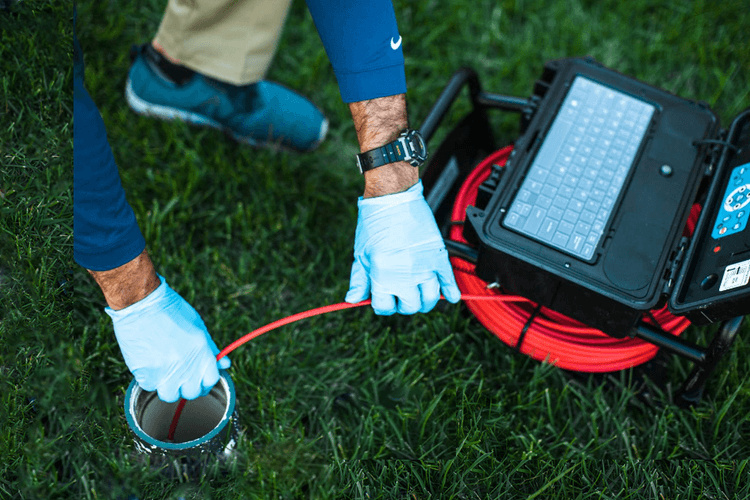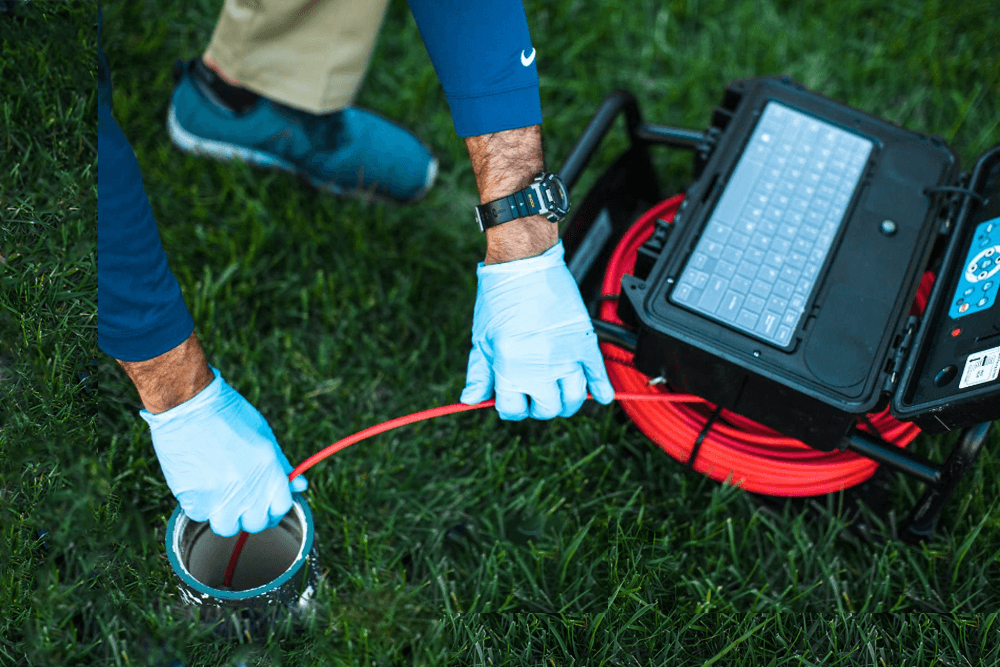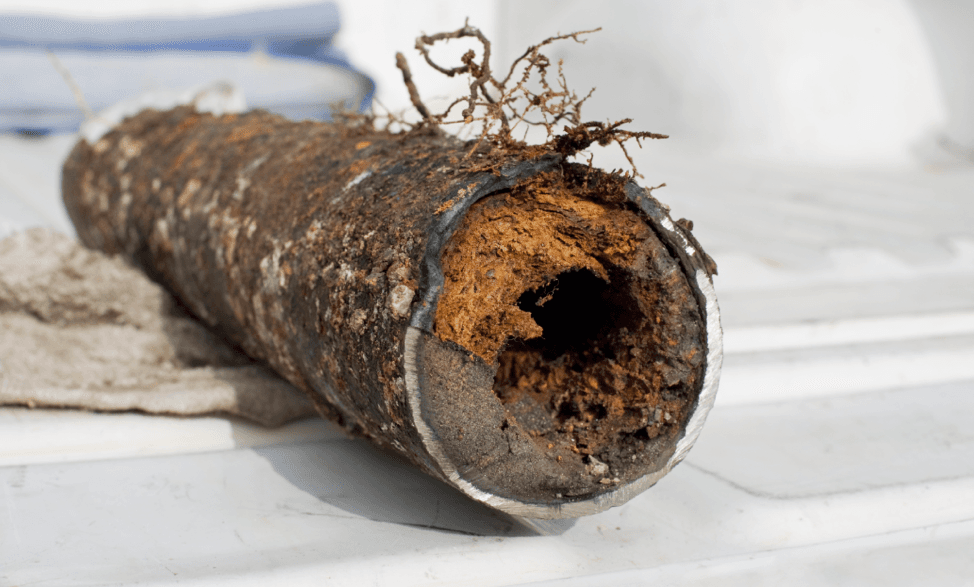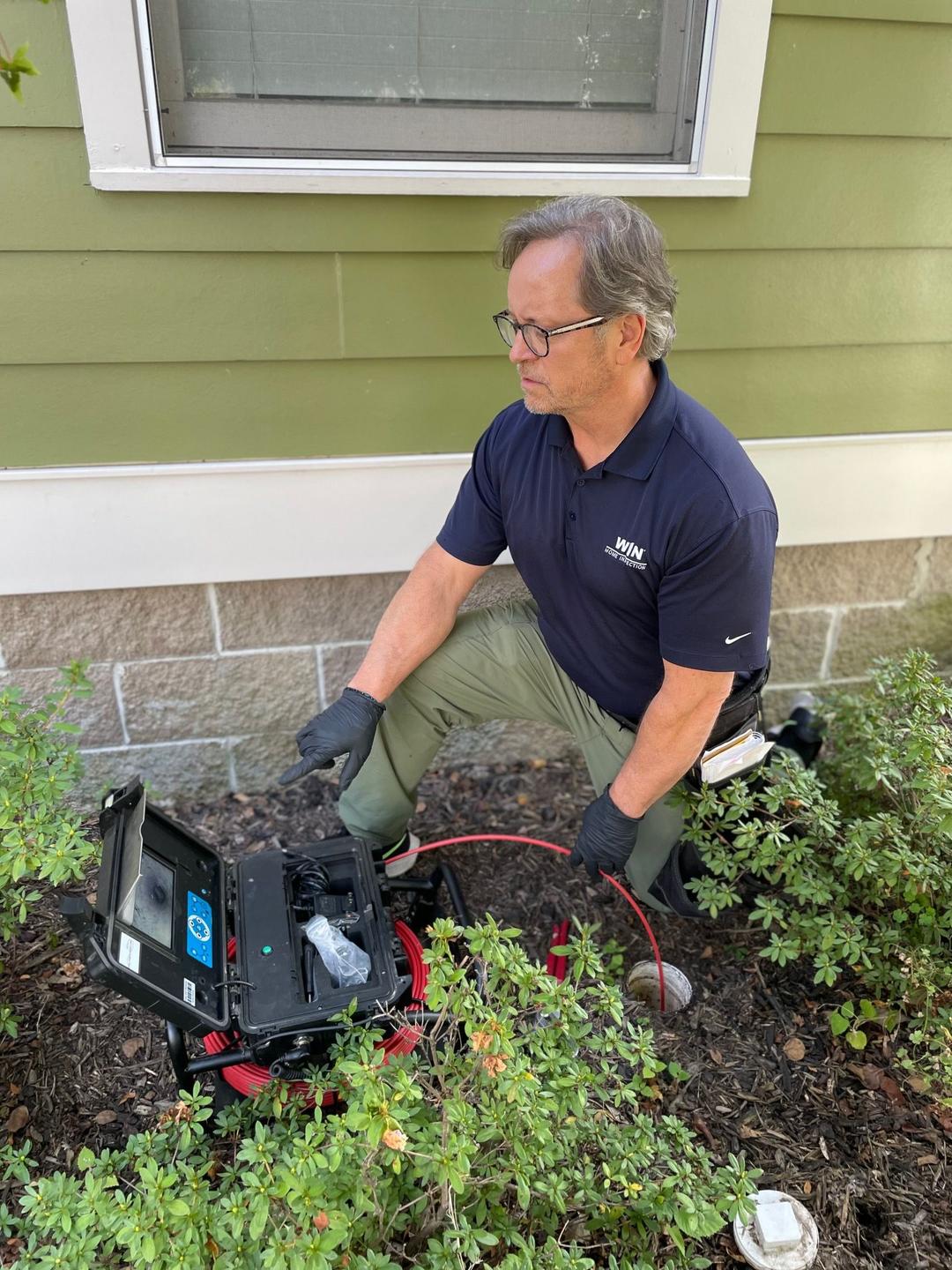$7,500
Average cost to repair undetected damage in sewer lines is $7,500.
50,000+
Sewers overflow every year, which could have been prevented with proper maintenance.
3 to 5 Years
Sewer lines should be thoroughly inspected every three to five years.
Blocked Sewage Line
Common cause of blockage includes debris, tree roots, and obstructions in the sewage line.
Why Get a Sewer Scope Inspection with WIN?
A Sewer Scope Inspection should be an essential part of your home maintenance plan because it can help you identify damage to your wastewater lines as well as blockages in the pipes including gunk, solid waste, tree roots, and other debris. Most homeowners and buyers don’t know there is anything harming their plumbing system until it’s too late and a sewage backup occurs, leaving them without safe water and costing them thousands to repair.
Our thorough inspection covers the entire sewer system. With our specialized equipment and certified inspectors, we provide clear images and videos of your sewer pipes and identify any issues or defects. By providing a detailed and reliable Sewer Scope Inspection report, we can help you protect your home and your wallet.
Benefits of a Sewer Scope Inspection
How Does a Sewer Scope Inspection Work?
At WIN, we use specialized equipment that allows us to see clearly down into your home’s wastewater lines.
STEP 1
Locate the Sewer Line
Your home inspector will locate your sewer line. Most access points are found outside along the side of house or in your garage, crawlspace, or basement.

STEP 2
Set Up the Equipment

STEP 3
Insert the Scope Camera

STEP 4
Analyze the Findings

STEP 5
Receive Your Report Within 24 Hours

Clients also searched for
Thorough and very good. WIN communicated issues with the home. Highly recommend!
Highly recommend WIN Home Inspection! The team was incredibly knowledgable and helped put my first-time-homebuyer nerves to rest!
I have used WIN Home services for several of my home purchases. They always do a great job. They are friendly, professional and very knowledgeable. I highly recommend them.
FAQs on Sewer Scope Inspection
Why should I get a Sewer Scope Inspection before buying a home?
How long does a Sewer Scope Inspection take?
How often should I get a Sewer Scope Inspection as a homeowner?
What are the benefits of getting a Sewer Scope Inspection as a homeowner?
What are some common sewer problems that a Sewer Scope Inspection can detect?
Why should I get a Sewer Scope Inspection before selling my home?
Who pays for the Sewer Scope Inspection when selling a home?
What if the Sewer Scope Inspection reveals problems with my sewer system?
If you are a home buyer, you also have a number of options to consider: (1) You can budget for the required repairs or maintenance needed and address the issue after closing. (2) You can bring up the issues found with the seller and renegotiate your contract.
If you are a homeowner, your WIN home inspector can give you unbiased advice on how to best address the issue identified. It’s important that any issues found with your sewer system are addressed immediately to avoid worsening conditions, burst pipes, and sewage backup.













